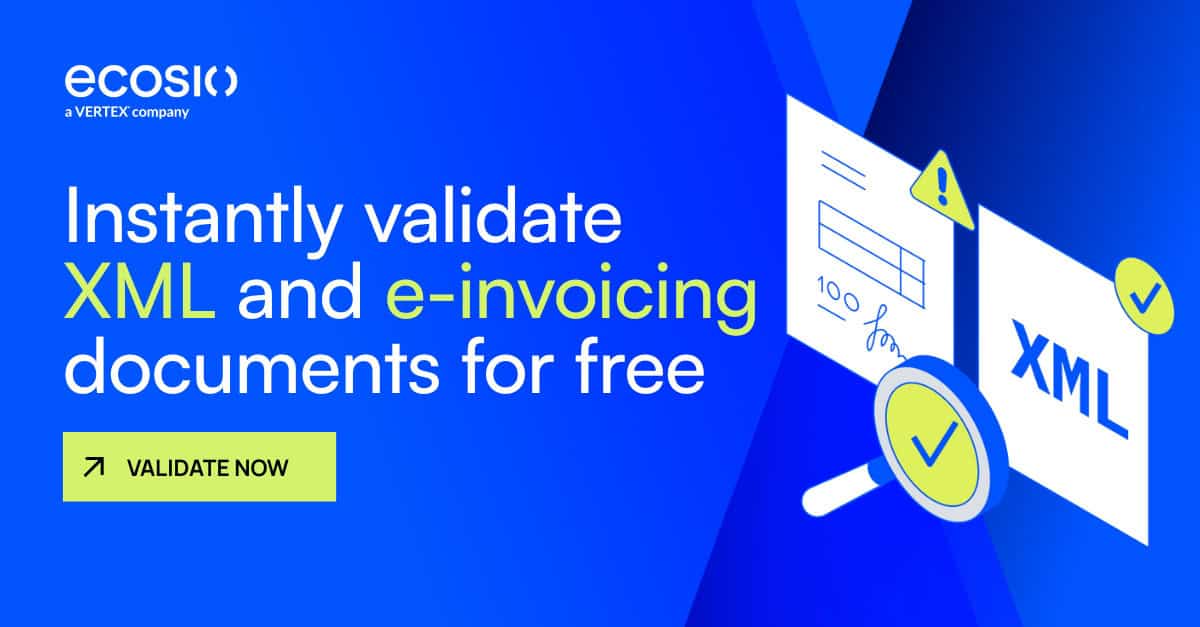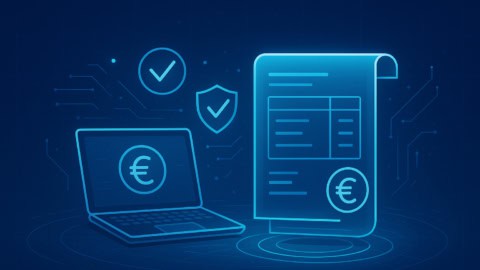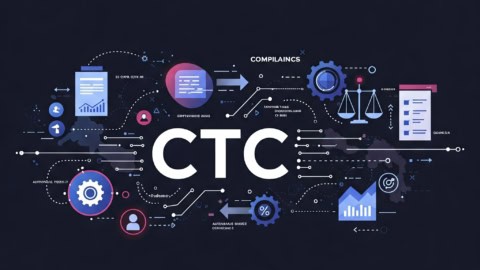TL;DR summary
- Singapore became the first Peppol Authority outside Europe in May 2018
- The InvoiceNow network (based on SG Peppol BIS Billing 3.0) launched in 2019
- From May 2025, IRAS began rolling out a GST InvoiceNow Requirement
- This becomes mandatory for new voluntary GST registrants from 1 November 2025 and 1 April 2026
Introduction
In recent years, both e-invoicing and Peppol have seen rapid global adoption. While much of this growth stems from European regulations introduced after the 2014 EU Directive, non-European countries such as Australia, New Zealand, and Singapore have also implemented their own Peppol-based frameworks.
Australia uses the PINT A-NZ (Peppol International) format, while Singapore employs its own SG Peppol BIS Billing 3.0 standard, known locally as InvoiceNow, which is now being upgraded to the PINT-SG format. This demonstrates how Peppol is adapting to global requirements and gaining traction across the Asia-Pacific region.
This article focuses on Peppol in Singapore, its current implementation status, and how businesses can get connected.
But first, a brief reminder of what Peppol is…
What is Peppol?
Peppol — short for Pan-European Public Procurement Online — is a set of technical specifications and framework agreements designed to streamline B2B and B2G procurement processes.
Importantly, Peppol is not an e-procurement platform. Instead, it provides the methodology, interoperability standards, and governance framework to exchange structured business documents securely between trading partners.
If you would like a more detailed explanation of what Peppol is, please see our dedicated Peppol article.
Peppol in Singapore – what’s happened so far?
2018–2020: establishing the network
- May 2018: The Infocomm Media Development Authority (IMDA) became the first Peppol Authority outside Europe
- January 2019: IMDA launched the national e-invoicing network, now branded InvoiceNow, working with government agencies, trade associations, EDI providers, and businesses to support B2B digitalisation
- January 2020: The Singapore Government introduced a new channel allowing suppliers to submit e-invoices directly through the network
2020: accelerating adoption
- March 2020: IMDA launched several incentives to boost e-invoicing take-up, including the Chain Leader Grant, which subsidised integration costs for large businesses with more than 500 partners
2025–2026: integrating tax and automation
- May 2025: The Inland Revenue Authority of Singapore (IRAS) began implementing the GST InvoiceNow Requirement, mandating the submission of invoice data to IRAS via the InvoiceNow network
- 1 November 2025: This became compulsory for newly incorporated companies that voluntarily register for GST
- 1 April 2026: The rule expands to cover all new voluntary GST registrants, integrating tax compliance directly with e-invoicing processes
Meanwhile, the InvoiceNow network has been significantly enhanced to support the entire procurement lifecycle, including advanced ordering and order balance functions. This enables the automated exchange of:
- Purchase orders
- Order changes
- Order cancellations
These features are based on the BIS Advance Ordering 3.0 specification, and the new SG BIS Order Balance document allows buyers and sellers to communicate remaining delivery quantities.
Testing is underway with government suppliers, marking a major step towards end-to-end digital B2B and B2G automation.
Who is in control?
The Infocomm Media Development Authority (IMDA) acts as Singapore’s Peppol Authority. It is responsible for:
- Implementing national e-invoicing rules
- Defining local specifications and extensions
- Approving and certifying Peppol Access Point (AP) providers
Only IMDA-certified providers are permitted to operate as access points within Singapore’s network.
Peppol in Singapore – What are the requirements for businesses?
Singapore’s national e-invoicing network (InvoiceNow) operates on the Peppol framework, using its own localised format — SG Peppol BIS Billing 3.0.
This format is an extension of both Peppol BIS Billing 3.0 and EN 16931, ensuring Singapore’s e-invoices remain fully interoperable with the global Peppol network while meeting domestic requirements.
Any business wishing to exchange e-invoices in Singapore must:
- Be able to process messages using the SG Peppol BIS Billing 3.0 (or PINT-SG) standard
- Connect to the network via a certified Peppol access point (AP) provider, either through an existing partner or by becoming an approved AP themselves
How to get connected to Peppol in Singapore
- Verify that your ERP or invoicing software supports SG Peppol BIS Billing 3.0 / PINT-SG
- Choose a certified access point provider approved by the IMDA
- Test connectivity through InvoiceNow to ensure compliance with IRAS GST submission requirements
- Monitor IMDA’s technical updates and new specifications for the BIS Advance Ordering 3.0 and Order Balance features
Choosing an access point provider
As Peppol in Singapore is relatively new and the Peppol Access Point certification process takes time, there are currently only a handful of IMDA authorised Access Point providers (of which ecosio is one).
All of these providers will be able to help you access the Peppol network (via InvoiceNow) and exchange documents with other Peppol-connected companies in accordance with Singapore’s Peppol regulations. However, not all providers offer the same thing. For example, not all providers offer a fully managed service or an API connection. As a result, message exchange via some providers will take much more effort than with others.
Get connected with ecosio!
Having been one of the very first European Peppol Access point providers, ecosio is a fully certified Peppol Access Point in Singapore too.
We have helped hundreds of companies to experience the benefits of e-invoicing and Peppol, and are well equipped to help your business do the same. Our unique API also enables customers to experience remarkable data visibility, allowing for e-invoice processes to be further streamlined – meaning lower costs and less stress!
Contact us to find out more. We are always happy to answer any questions.















